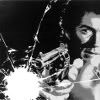- 12 Oct 2012 21:38
#14080537
It may seem as if i'm posting a one-man manifesto on this my first thread, but I think that there is a chain of connections between the origins of Anarchism with Pierre Proudhon, and the thinking of Blaise Pascal and the Jansenistic Port-Royal movement. Therefore, while this is an intensely personal thread, it is certainly open to discussion. This is part of my personal journey to let go of the authoritarian structures of my thought, and the means of liberation where I have rejected Coercion and embraced Love, Charity over Power, Freedom over Tyranny.
(By the way, if anyone can show direct links between Pascal/Jansenism and Proudhon/Anarchism in a direct way, please feel free to interject such information).
I am, to further elucidate my position, a deeply religious and spiritual man. However, my former traditional Roman Catholic background, formed itself to hold on to 'something' as the confusion deepened within the Church in the 60's to the present, led me to look to Power as the glue that held all things together, instead of Power being the way I now see it, the very element of violence and coercion that corrupts all things and throws all into Chaos. Back then though, my favorite guides were thinkers like Joseph de Maistre, Juan Donoso y Cortes, and Carl Schmidt. Authoritarianism and even Fascism became my Faith, yet the more I clung to the hope of a modern-day 'counter-revolution' to sweep Throne and Altar back into power and restore the great (as I saw it) 'Ancien Regime, the more I became detached from the real world and lost sight of day-to-day reality. I do, after all, live in the Southwest region of the United States, in the 21st century....
Then I discovered Blaise Pascal. Actually, along with his works, I read the writings of Leon Bloy (almost forgotten now), and they began to erode my 'faith' in the infallibility of Popes and Kings. My next post, i'd like to further explore how it happens that this absolutely devout man of both spirit and genius managed to do this, but I hope that I have provided enough to start a good discussion for now.
(By the way, if anyone can show direct links between Pascal/Jansenism and Proudhon/Anarchism in a direct way, please feel free to interject such information).
I am, to further elucidate my position, a deeply religious and spiritual man. However, my former traditional Roman Catholic background, formed itself to hold on to 'something' as the confusion deepened within the Church in the 60's to the present, led me to look to Power as the glue that held all things together, instead of Power being the way I now see it, the very element of violence and coercion that corrupts all things and throws all into Chaos. Back then though, my favorite guides were thinkers like Joseph de Maistre, Juan Donoso y Cortes, and Carl Schmidt. Authoritarianism and even Fascism became my Faith, yet the more I clung to the hope of a modern-day 'counter-revolution' to sweep Throne and Altar back into power and restore the great (as I saw it) 'Ancien Regime, the more I became detached from the real world and lost sight of day-to-day reality. I do, after all, live in the Southwest region of the United States, in the 21st century....
Then I discovered Blaise Pascal. Actually, along with his works, I read the writings of Leon Bloy (almost forgotten now), and they began to erode my 'faith' in the infallibility of Popes and Kings. My next post, i'd like to further explore how it happens that this absolutely devout man of both spirit and genius managed to do this, but I hope that I have provided enough to start a good discussion for now.














 - By JohnRawls
- By JohnRawls - By Potemkin
- By Potemkin